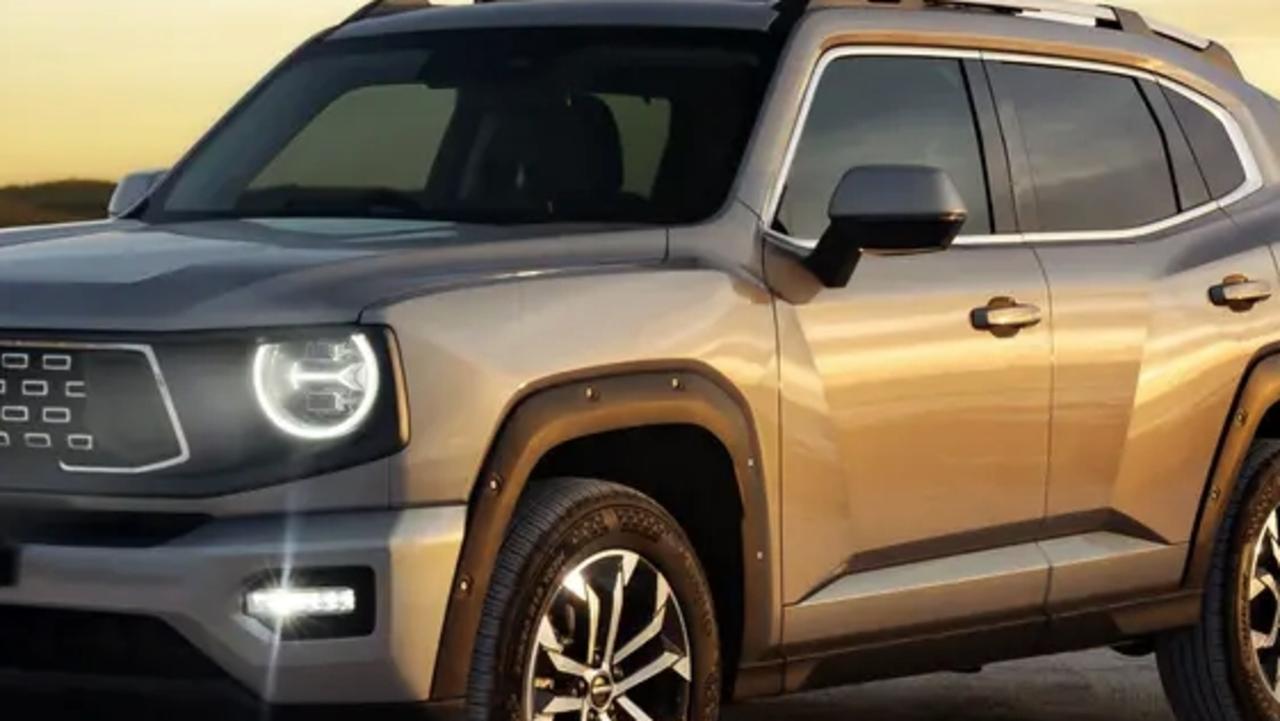Seven-seat SUV comparison test: Kia Sorento v Hyundai Santa Fe v Mazda CX-9
We put three of the best large SUVs to the test to find out which seven-seater is the right choice for you and your family.
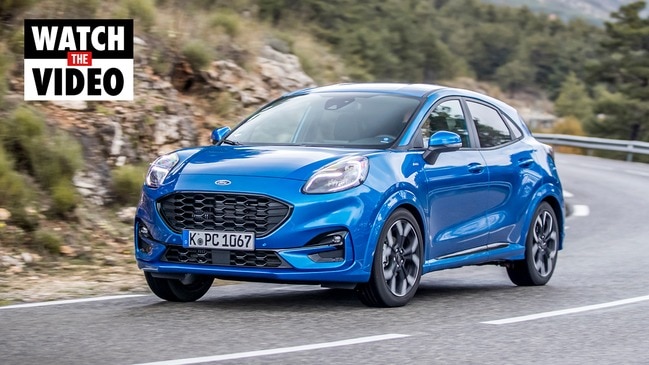
New Cars
Don't miss out on the headlines from New Cars. Followed categories will be added to My News.
Bigger isn’t always better. But in this case, the biggest cars offered by Mazda, Hyundai and Kia represent some of their best work.
Engineered to seat seven comfortably and safely, this trio of SUVs are among the most popular with modern families.
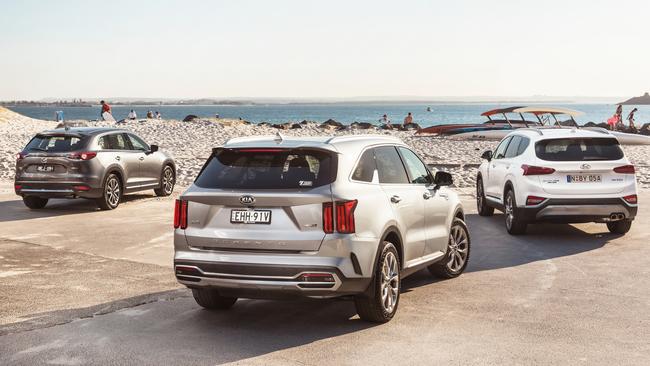
MAZDA CX-9 AZAMI
The range-topping Mazda CX-9 crowns a company-wide push into premium territory.
Priced from $69,990 drive-away, the Azami is the most expensive Mazda in the range.
You don’t need a magnifying glass to see why it costs nearly $25,000 more than the brand’s entry-level CX-9. Walnut brown nappa leather seats have 10-way electric driver adjustment along with heating and cooling for the front row and heating for the middle bench, where dedicated climate control and armrest-mounted USB points keep passengers satisfied. There are sun blinds, a powered tailgate and a clever sliding bench seat.
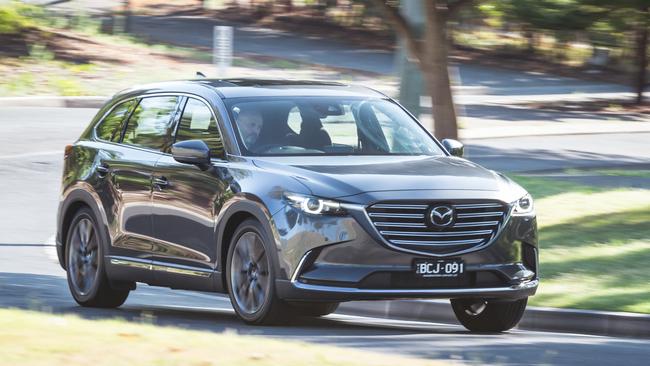
Connectivity is accounted for by a 9-inch infotainment system controlled by a rotary dial near the gear selector, hooked up to Android Auto, Apple CarPlay, satnav and a 12-speaker Bose stereo. There’s also a head-up display and driver assistance features including forward and reverse auto emergency braking, active cruise control, lane keeping assistance and more.
Backed by a five-year, unlimited-kilometre warranty that has become the new industry standard, the CX-9 is the cheapest to service at a little more than $2100 for five years, though its 10,000 kilometre intervals are too short. The largest boot hides a space-saver spare.

We found the CX-9 has the most room in the third row, but were disappointed by a lack of air vents back there. Powered by a 2.5-litre turbo petrol engine using 8.4L/100km to make 170kW and 420Nm, the CX-9 is the thirstiest car here, offsetting that with smooth performance.
It’s a polished car overall, with a sweet engine and well-sorted transmission. Mazda’s contender is an ergonomic triumph, with clear instruments and key features that can be accessed without a long reach to a touchscreen that drags your eyes off the road.
Our test car’s suspension was a little noisy, though it rode reasonably well on enormous 20-inch wheels. The Mazda is the biggest car here, and noticeable body roll dulls driver input.
HYUNDAI SANTA FE HIGHLANDER
Introduced back in 2000, the Santa Fe is now in its fourth generation. The current model debuted in 2018 with arresting looks, a premium cabin and class-leading safety tech such as rear doors that stop kids stepping into the path of fast-moving traffic.

An updated model with even bolder looks, a comprehensively reworked cabin and important mechanical changes is just around the corner. But for now, we have the existing Santa Fe Highlander priced from about $66,900 drive-away.
There’s heating and cooling for the front seats and heating to the outboard rear seats. The driver gets 14-way electric adjustment, but the quality of leather used is sub-par compared with the Kia and Mazda. It misses out on the Mazda’s three-zone climate control but adds wireless phone charging. Likewise, 19-inch wheels don’t look as sharp as its rivals, but a full-size spare is great to have. Its 8-inch centre screen feels small next to the Kia’s and the 10-speaker Infinity stereo doesn’t match the brag factor of the others’ 12-speaker Bose systems.
Hyundai’s five-year, unlimited-kilometre warranty is supported by five years of capped-price servicing, which will set you back $2239 over five years.

Its 2.2-litre turbo diesel engine serves up 147kW and 440Nm, supported by a conventional eight-speed auto delivering middle-of-the-road fuel economy.
A clever one-touch folding seat mechanism folds the middle row away to allow access to the coziest third-row accommodation of the group. The Santa Fe’s cabin surfaces and materials feel sub-par for the money, as does the conventional-looking dash.
Feel some steering lends confidence on the road, and Hyundai’s locally sorted suspension does a good job of disguising its weight. But the ride is the busiest of our trio, and there’s more road noise than the other cars. Hyundai’s diesel engine also needs a moment to gather itself before delivering full power.
KIA SORENTO GT-LINE
A car of the year winner back in 2015, the previous-generation Sorento impressed with a combination of value, practicality and refined manners. The new Sorento ramps up its appeal even further. Priced from $64,990 drive-away in range-topping GT-Line trim, the Sorento has everything Kia can offer.

You get quilted nappa leather seats, 20-inch wheels with a full-size spare, a 10.25-inch central touchscreen with fast wireless charging, Apple CarPlay and Android Auto, 360 degree camera and 12-speaker Bose stereo. The 12.3-inch driver display can be configured to the driver’s preferences and uses cameras to show live video of the car’s blind spots when changing lanes.
It feels far more modern than rivals and has all the safety features you could expect, including front and rear auto emergency braking, lane keeping assistance and the Hyundai’s passenger exit warning system. Other niceties include a powered tailgate, ambient lighting and 14-way driver adjustment.
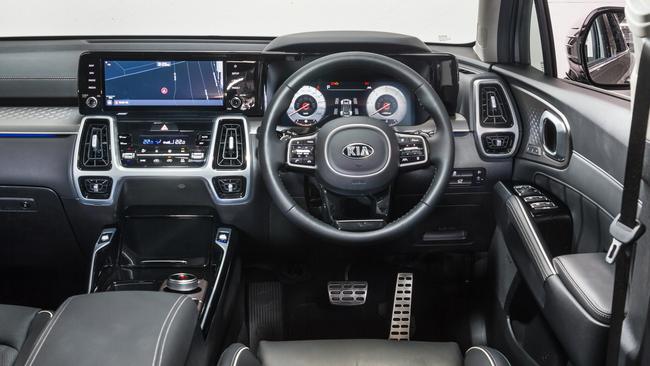
There are eight USB points spread through the cabin, and clever placement (such as the shoulders of the front seats) allows all of them to be used at once. As with the Hyundai, the Kia offers one-touch access to a third row with air vents and independent fan controls, but it improves on the Santa Fe with easier access and more space once you’re in there.
Though it has fundamentally the same 148kW/440Nm diesel engine as the Santa Fe, a new dual-clutch automatic helps cut fuel use to just 6.1L/100km. Servicing priced from $2401 for five years is the dearest of the three, but Kia’s seven-year warranty makes up for that.
On the road, the most comfortable ride of the trio combines with excellent noise suppression and an outstanding driving position to score points. It feels smaller than its size suggests.
VERDICT
Packed with tech, safety and luxury features, the Kia Sorento’s refined drive manners help it take a comfortable victory. Hyundai’s Santa Fe will run it close when it is updated, while running changes to the CX-9 will also lift its appeal soon.
KIA SORENTO GT-LINE VITALS
Price: $64,990 drive-away
Engine: 2.2-litre 4-cyl turbo diesel, 148kW/440Nm
Warranty/servicing: 7-yr/unl’td km, $2401 for 5 years
Safety: Not yet rated, 8 airbags, auto braking front and rear, active cruise control, lane keeping assistance, blind-spot alert, exit assist
Thirst: 6.1L/100km
Storage: 616L
Spare: Full size
HYUNDAI SANTA FE HIGHLANDER VITALS
Price: About $66,900 drive-away
Engine: 2.2-litre 4-cyl turbo diesel, 147kW/440Nm
Warranty/servicing: 5-yr/unl’td km, $2239 for 5 years
Safety: 5 stars, 8 airbags, auto emergency braking front and rear, active cruise control, lane keeping assistance, blind-spot alert, exit assist
Thirst: 7.5L/100km
Storage: 547L
Spare: Full size
MAZDA CX-9 AZAMI VITALS
Price: $69,990 drive-away
Engine: 2.5-litre 4-cyl turbo, 170kW/420Nm
Warranty/servicing: 5-yr/unl’td km, $2106 for 5 years
Safety: 5 stars, 8 airbags, auto emergency braking front and rear, active cruise control, lane keeping assistance, blind-spot alert
Thirst: 8.4L/100km
Storage: 810L
Spare: Space saver
Originally published as Seven-seat SUV comparison test: Kia Sorento v Hyundai Santa Fe v Mazda CX-9


